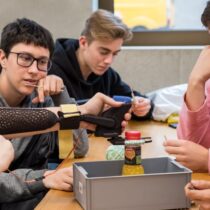Empowering Change
March 28, 2024It’s a good sign that there are a number of men in attendance at the ETH Global Lecture for International Women’s Day 2024: Empowering Change. It almost makes up for the tiresome fact that we still have to set aside one day out of 365 every year to respect what is actually the majority of the planet’s population. There is work to be done.
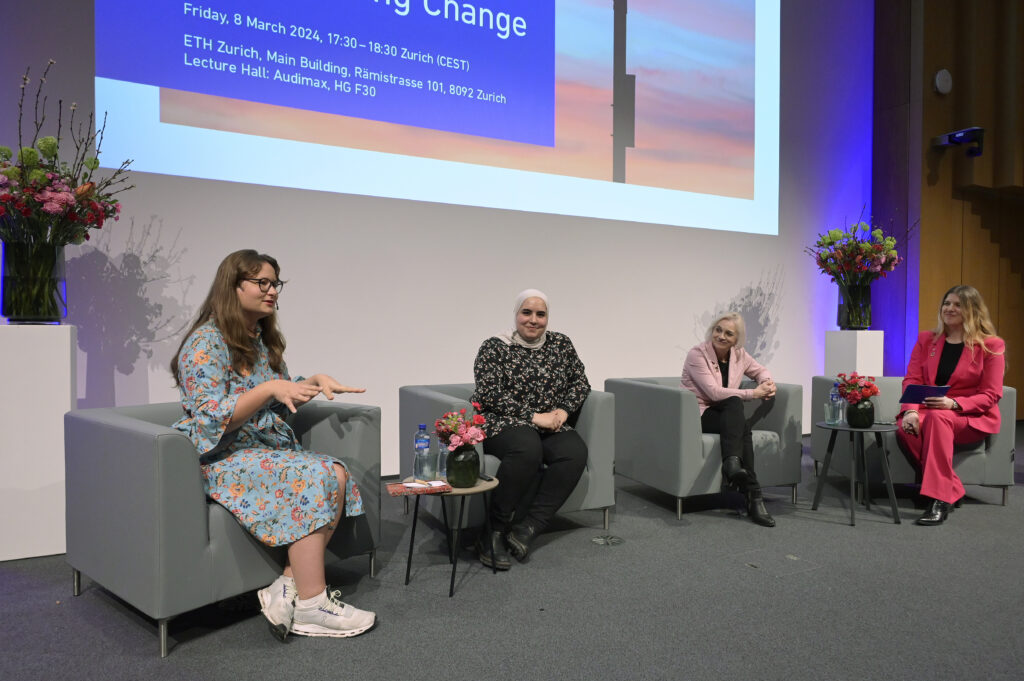
But this is ETH, the subject is empowerment, the atmosphere is positive and it quickly becomes clear that this will be an engaging discussion, not a pro forma pageant.
Viktoria Ivarsson, Head of Alumni Engagement at ETH Zurich hosts a panel of three experts from business, science and activism: Kathrin Amacker, Board President of Fairtrade, Max Havelaar, Switzerland and member of the Chairs group of Fairtrade International; Menna El-Assady, Assistant Professor at the Department of Computer Science of ETH Zurich; and the climate justice activist Marie-Claire Graf, co-founder of the Youth Negotiators Academy and former youth representative at the United Nations Climate Change and Food Systems Summit.
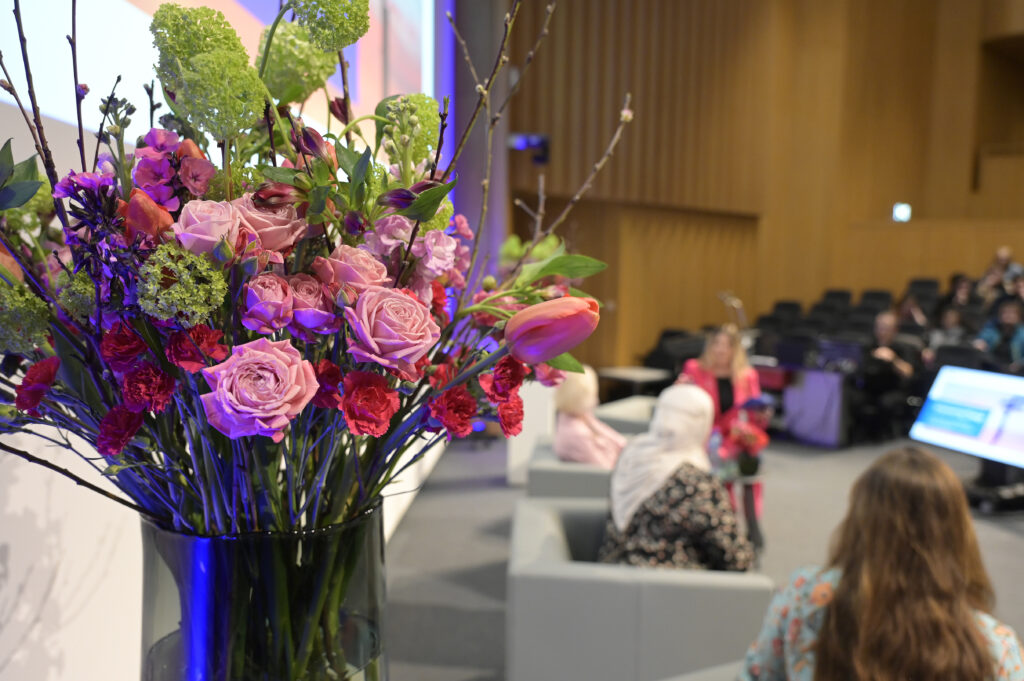
What follows is a talk that includes themes as diverse as role models, what we want artificial intelligence to learn, how Switzerland being a nation of swots can actually accelerate progress towards equality, and how sometimes it’s desperation and frustration that drives us to affect real change.
Kathrin Amacker tells of a smallholder cocoa farmer named Lucy who produces for the Fairtrade label in Western Africa. Thanks to the European market’s sustainable development goals, which include equal rights initiatives, Lucy was able to set up a Fairtrade-certified farm and a pension plan. In an environment where about 85% of all families or farm holders don’t receive a living wage, where child labour is a serious issue and women do not have equal rights, she is a role model at a time when the UN estimates if we had equal rights around the world, 150 million people on the planet would not be malnourished.
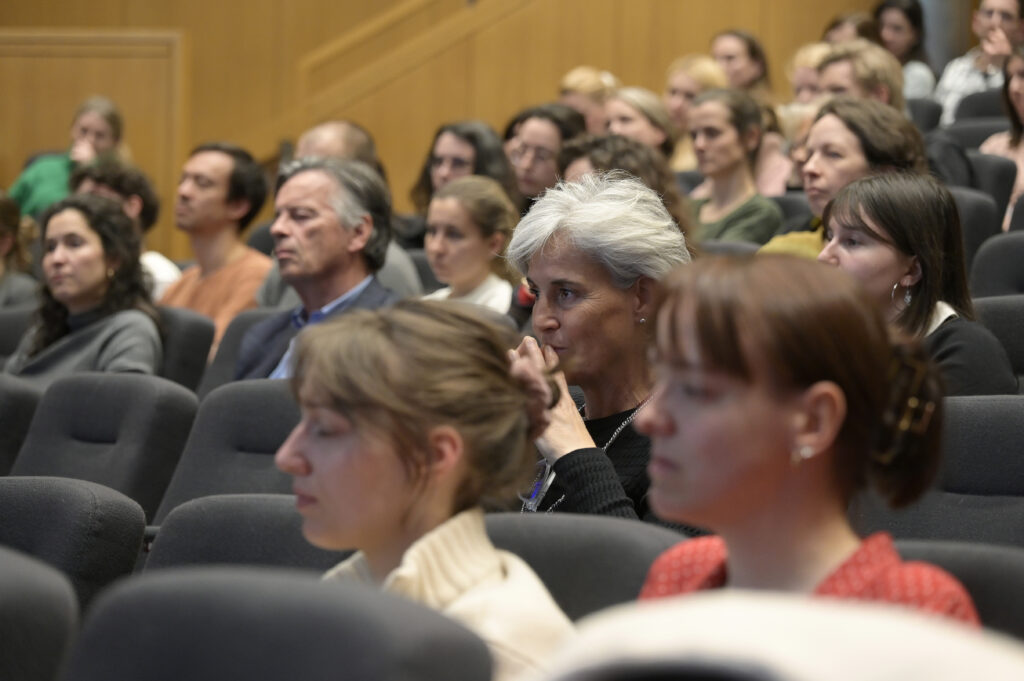
At the scientific end of the spectrum, Menna El-Assady’s work studying interactive human-AI collaboration interfaces looks at solving problems such as trying detect biases in large language models like ChatGPT. Representations of women in these data reflect the real world, so if an LLM learns that women are blonde receptionists and housekeepers and men are strong football players, it’s not that computer scientists aren’t able to create better models, but that we need to ask ourselves what we want AI to learn. “Do we want them to represent the reality of our world, which is not equitable,” she asks, “or do we want them to represent something more idealistic?”
The empowerment lies in creating communication interfaces that allow people to actually look into AI systems, she believes, to see how they make changes and input their human feedback to tell scientists about the world they want to create. So that people, regardless of their background, can really make an impact. “I really think that bringing humans and AI together can lead us to solve more complex problems, but also to create a better world,” says El-Assady.
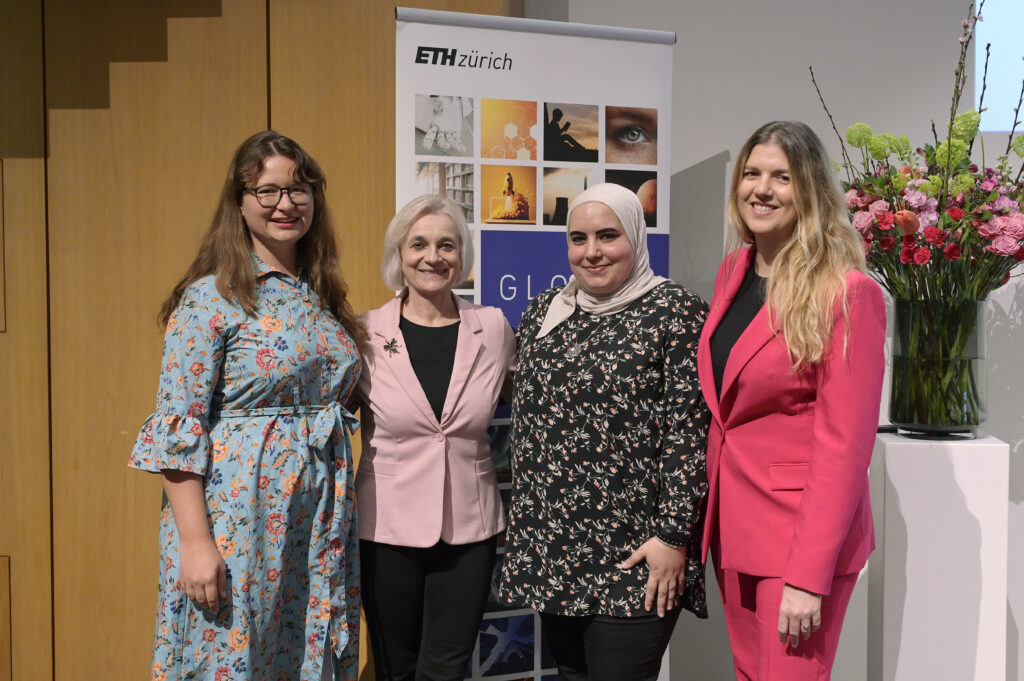
Marie-Claire Graf has an inspiring story of how biases motivated her to found the Youth Negotiators Academy. This organisation trains young people from all around the world to go into spaces dominated by older white men in dark suits, like the UNFCCC Conference of the Parties (COP).
While representing Switzerland as a negotiator at COP 25 as a 23-year-old, Graf was rejected by an older male attendee who insisted on meeting “the Swiss delegation”, when actually she was standing right in front of him. Instead of speaking to her, he walked away.
“I’m really grateful to this person,” Graf says, “because only then did I come up with the idea of creating an academy, which is today the largest one for young negotiators and diplomats in the environmental space.”
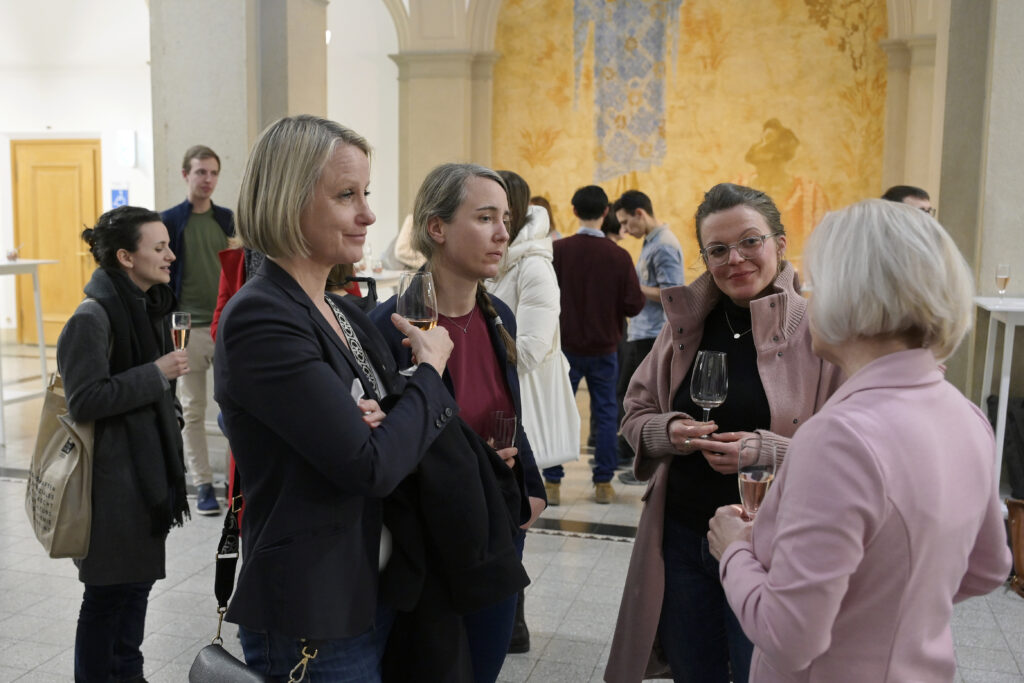
A question from the audience on Switzerland’s dismal glass ceiling performance (The Economist has it placing 27th out of 30 countries) brings surprising optimism from Amacker. She reminds the audience that when the number of women in board positions stood at about 13%, in 2014 Federal Councillor Simonetta Sommaruga challenged Swiss government agencies and companies to increase this to 30% by 2023. While Switzerland’s largest tabloid ridiculed her as a governess wagging her finger at the patriarchy, the organisations stepped up. “That’s also Switzerland. When you see: ‘Oh, now it’s required’, then you’re faster so that you reach it in two years,” says Amacker. As a result, in 2020 the Council raised the number to 40% for companies subsidised by the government.

Amacker also stresses the need to support female junior staffers by seeing them and using their names to encourage them. “This is so powerful. And everyone, every one of you, can do that every day.”
Ivarsson picks this up: “How do you make it International Women’s Day every day? How can we build it into our everyday lives as global citizens?”
“Some studies have found that change always takes longer to reach the tipping point. But then the change itself accelerates, and it becomes implemented faster than we ever thought,” says Graf. “And we can all contribute to that every single day.”
In answer to Ivarsson’s question of what she thinks of the future, El-Assady replies: “We just need to dream up that future and push for it and make it happen.”
Watch the full recording:
Find out more about our ETH Global Lecture Series here.



